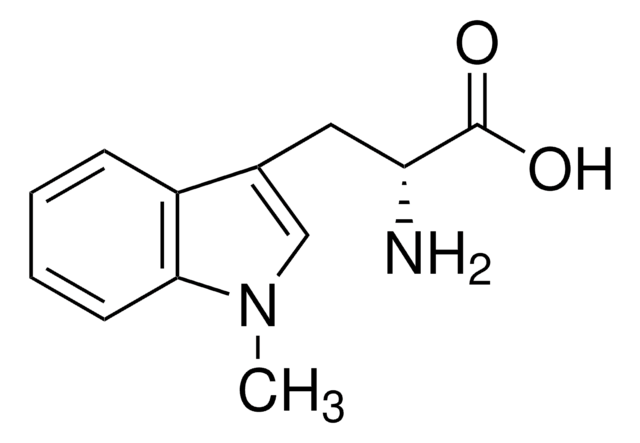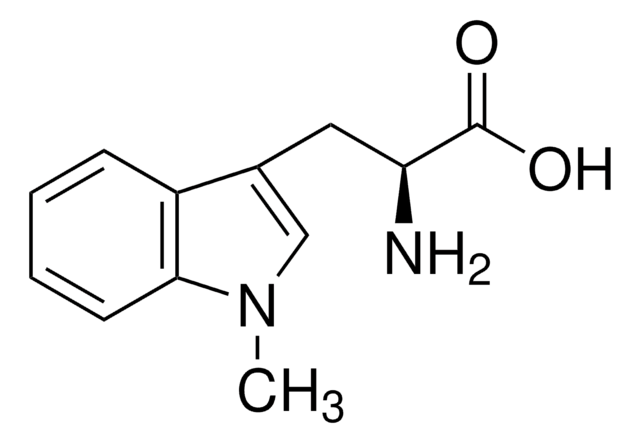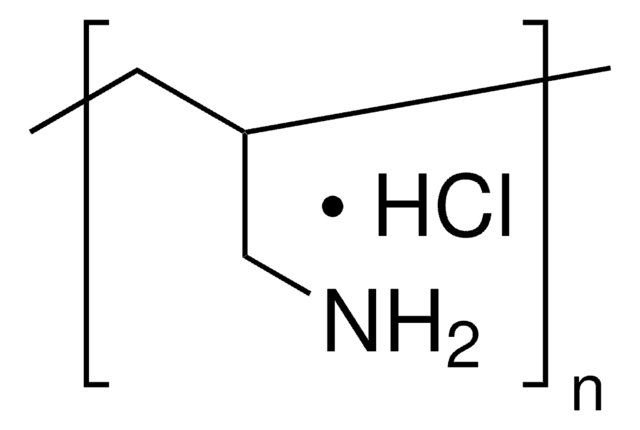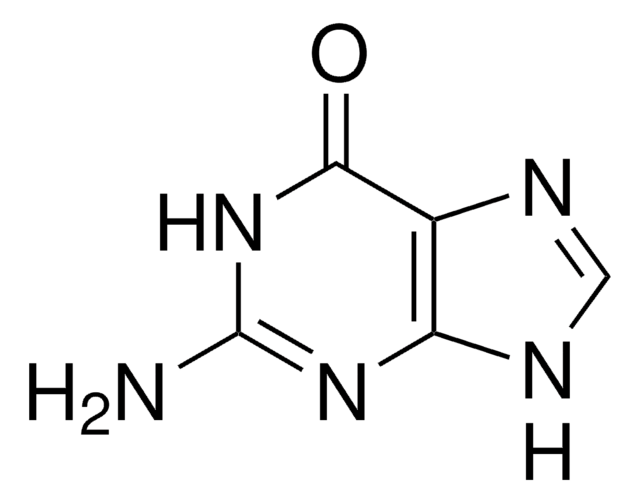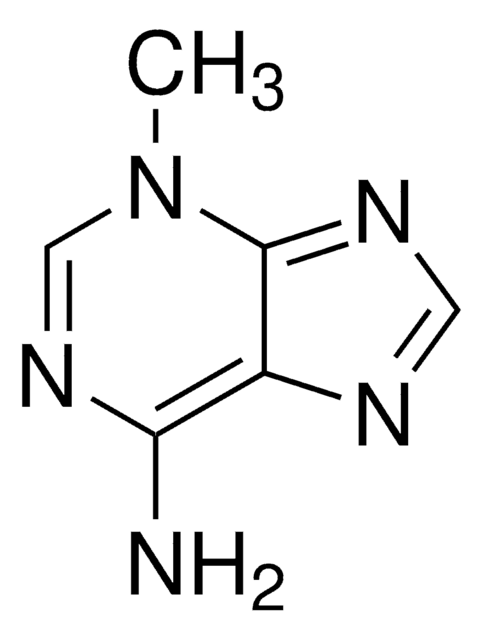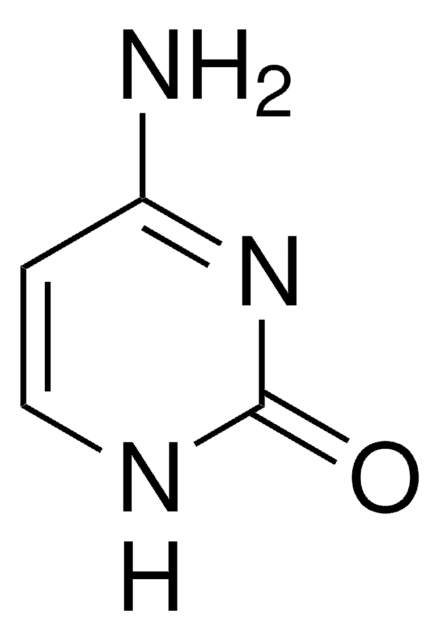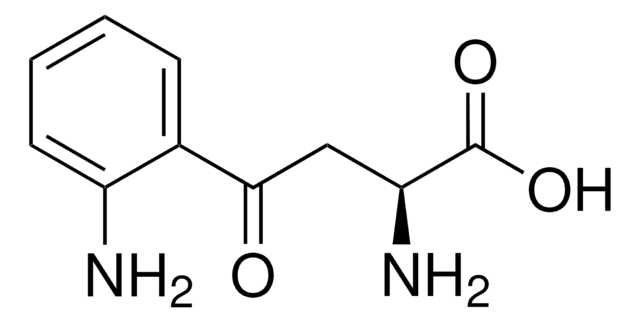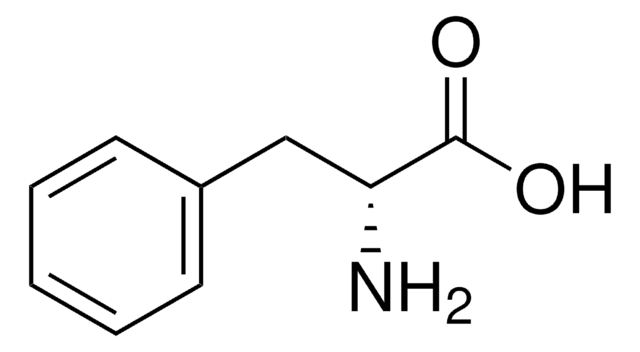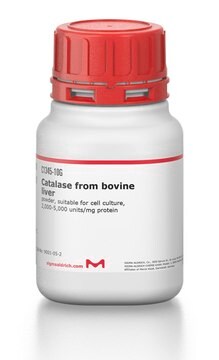860646
1-Methyl-DL-tryptophan
97%
Sinônimo(s):
1-Methyl-DL-tryptophan, 1-Methyltryptophan, 2-Amino-3-(1-methyl-1H-indol-3-yl)propanoic acid, 2-Amino-3-(1-methyl-1H-indol-3-yl)propanoicacid, 2-Amino-3-(1-methylindol-3-yl)propanoic acid, DL-1-Methyltryptophan, N′-Methyl-DL-tryptophan
About This Item
Produtos recomendados
Nível de qualidade
Ensaio
97%
Formulário
solid
pf
250 °C (dec.) (lit.)
grupo funcional
amine
carboxylic acid
cadeia de caracteres SMILES
Cn1cc(CC(N)C(O)=O)c2ccccc12
InChI
1S/C12H14N2O2/c1-14-7-8(6-10(13)12(15)16)9-4-2-3-5-11(9)14/h2-5,7,10H,6,13H2,1H3,(H,15,16)
chave InChI
ZADWXFSZEAPBJS-UHFFFAOYSA-N
Categorias relacionadas
Aplicação
Código de classe de armazenamento
11 - Combustible Solids
Classe de risco de água (WGK)
WGK 3
Ponto de fulgor (°F)
Not applicable
Ponto de fulgor (°C)
Not applicable
Equipamento de proteção individual
Eyeshields, Gloves, type N95 (US)
Escolha uma das versões mais recentes:
Já possui este produto?
Encontre a documentação dos produtos que você adquiriu recentemente na biblioteca de documentos.
Os clientes também visualizaram
Nossa equipe de cientistas tem experiência em todas as áreas de pesquisa, incluindo Life Sciences, ciência de materiais, síntese química, cromatografia, química analítica e muitas outras.
Entre em contato com a assistência técnica